9 Essential Vitamins and Minerals Needed by Every Men to Stay Healthy

Garima Srivastava
April 24, 2023

Garima Srivastava
April 24, 2023
In order to stay healthy, a wide range of nutrients are required by the body in the right balance. Following a healthy diet is the key to it. Many studies have also shown that consuming nutrient-rich foods that have the right balance of ‘macronutrients’ (which includes – carbohydrates, fats, and proteins) and ‘micronutrients’(vitamins and minerals) is the key to better health and lowered risk of diseases.
So, we decided to put together a list of minerals and vitamins that men need to stay healthy. Read on to know the major foods that provide them and the impact it will have on your overall health:
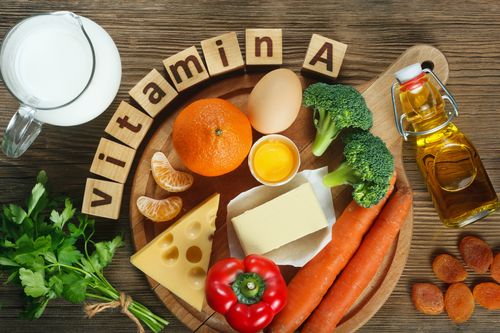
Vitamin A belongs to the group of fat-soluble vitamins. It is primarily responsible for the growth and development of cells, vision, immunity, and even reproduction. It also acts as a powerful antioxidant and potent hormone which can greatly affect the function of the heart, lungs, and kidneys.
Daily requirement: The recommended daily intake of vitamin A for adult men is 900 micrograms (mcg)
Sources: The predominant source of Vitamin A is liver and fish oils. Other sources rich in vitamin A are:
Benefits:
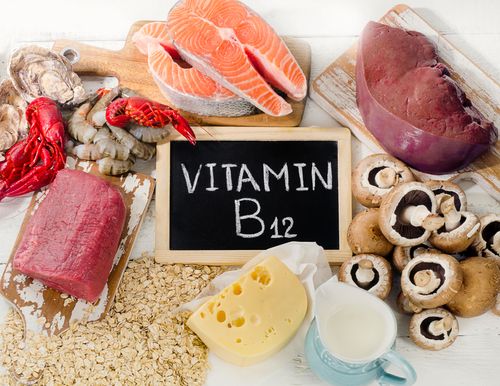
Vitamin B12, or cobalamin, is a water-soluble vitamin that increases the production of red blood cells in our body. It supports the building of DNA structure and ensures the proper functioning of our nervous system. Also balances the stress hormones and helps to reduce symptoms of depression
Daily requirement: The recommended daily intake of vitamin B12 for adult men is 2.4 micrograms(mcg)
Sources: The main source of vitamin B12 are animal products like meat and fish (e.g. salmon and cod). Secondary sources include:
Since Vitamin B12 is not found naturally in plants and grains, if you are a vegetarian or vegan, you may want to consider taking a B vitamin supplement.
Benefits:
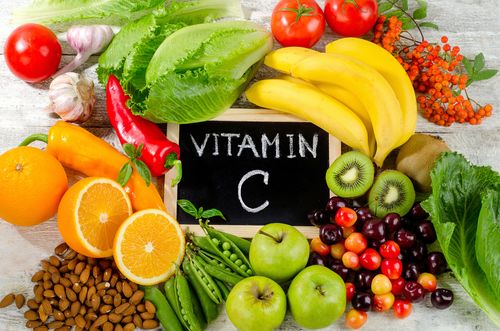
Vitamin C, or chemically known as ascorbic acid, is critical for the wear and tear of all body tissues. It is involved in multiple functions like absorption of iron, wound healing, and maintaining cartilage, bones, and teeth.
Daily requirement: The recommended daily intake of vitamin C for adult men is 90 micrograms(mcg). As it is water-soluble in nature, deficiency of vitamin C may occur, causing scurvy or bleeding gums.
Sources: The main source of Vitamin C are green veggies like broccoli, spinach, and cauliflower. Some other sources are:
Benefits:
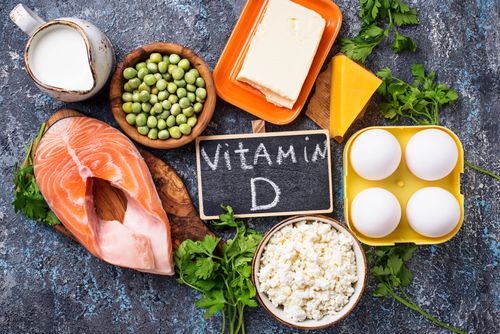
Vitamin D is a fat-soluble vitamin that regulates the levels of calcium and phosphate in the body. It is also important for strong bone, teeth, and muscle health.
Daily requirement: The recommended daily intake of vitamin C for adults is 10–20 micrograms (mcg). Although the deficiency is rare in India due to ample sunshine, deficiency of vitamin D can cause soft or fragile bones.
Sources: Vitamin D is produced by our skin from sunlight but can also be found in some foods.
Vitamin D can also be commonly found in
Benefits:
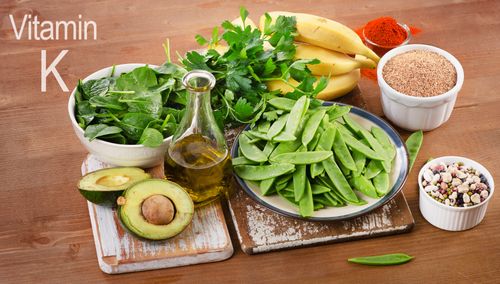
Vitamin K is a fat-soluble vitamin that carries out a complete synthesis of proteins required for blood coagulation.
Daily requirement: The recommended daily intake of vitamin K for adult men is 138 micrograms(mcg) and for adult women is 122 mcg.
Sources: The main source of vitamin K are green leafy vegetables like kale, spinach, broccoli, parsley, etc. It is also found in secondary sources like:
Benefits:
About 96% of the weight of the human body is composed of these four minerals – oxygen, hydrogen, carbon, and nitrogen. However, there are small traces of other important minerals found in the body. Some of those are:
Whenever you add salt to your food, you are in fact, adding sodium. The majority of Indians meet their sodium needs as part of their daily diet. However, excess intake of sodium may lead to high blood pressure.
Daily requirement: The maximum recommended daily intake of sodium for adults by WHO is 5 g per day. However, it is noted that sodium intake in India is about 11 g per day.
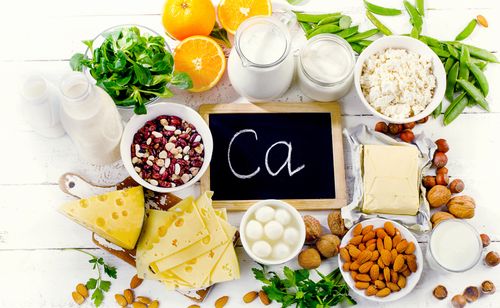
Calcium is an essential mineral to help build stronger bones, healthier teeth, and reduce muscle damage.
Daily requirement: The recommended daily intake of calcium for young adults is 1,000 milligrams (mg). In the case of men over 70 years of age, it is increased to 1,200 mg.
Sources: The main source of calcium is dairy products like milk, cheese, yogurt, etc. It is also found in:
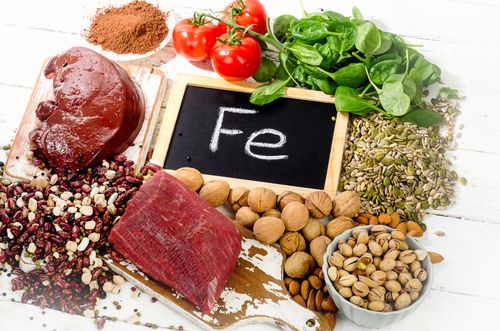
Iron supports the transportation of oxygen-rich blood from our lungs to the rest of our body. It helps in the formation of hemoglobin, which serves as an oxygen-carrier throughout the body.
Daily requirement: Since men do not menstruate, it is a common misconception that their body demands for iron are lower than women. In fact, the recommended daily intake of iron for adult males is 19.3–20.5 mg while for females, it is 17.0–18.9 mg.
Sources: Iron is found in huge quantities in animal products, especially red meat like beef. There are also secondary sources like:
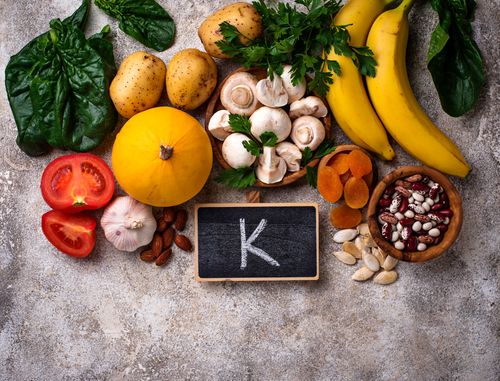
Potassium regulates fluid balance, improves muscle contractions, and makes sure the nervous system is working properly. A potassium-rich diet reduces the chances of getting a stroke and also prevents kidney stones.
Daily requirement: The recommended daily intake of potassium for adults is 4,700 milligrams (mg).
Sources: Bananas are a popular and inexpensive source of potassium. Other sources include:
Irrespective of their age, men have always seemed to function differently both physically and mentally. So, it is not a coincidence that the requirements that are needed for men. Hence, it is important that every man out there makes sure to take these vitamins or minerals in the above-mentioned ways to lead a healthy and holistic life.


Nice blog! Thanks for posting this information. Vitamin A supports your immune system, prevents age-related eyesight decline and is linked to overall growth and bone development.